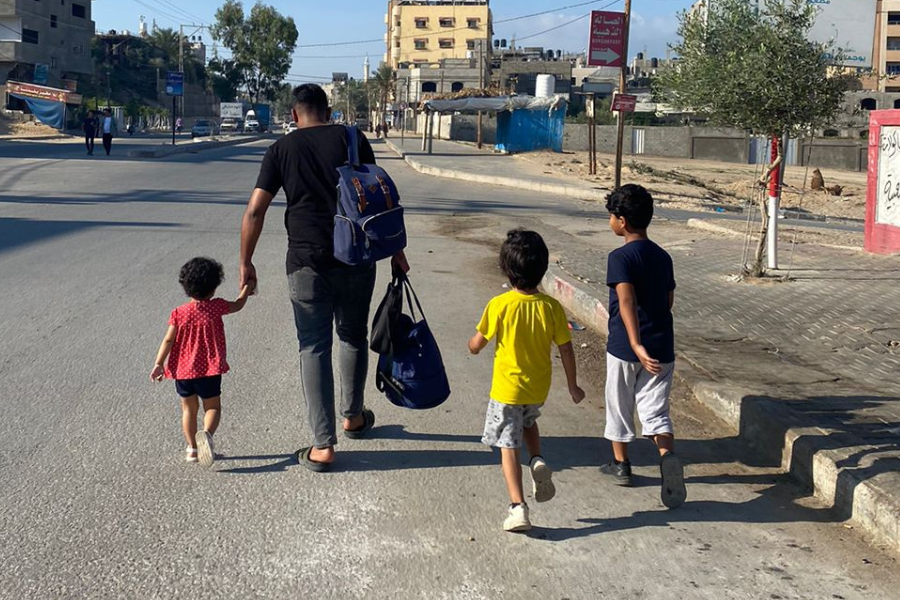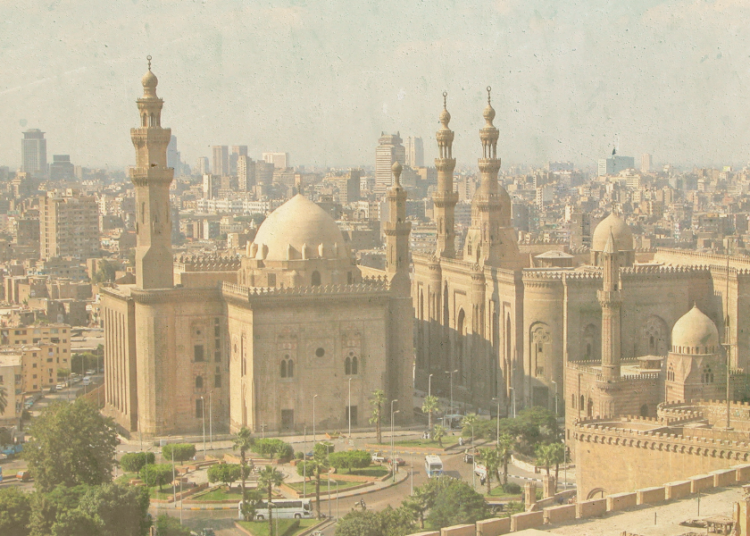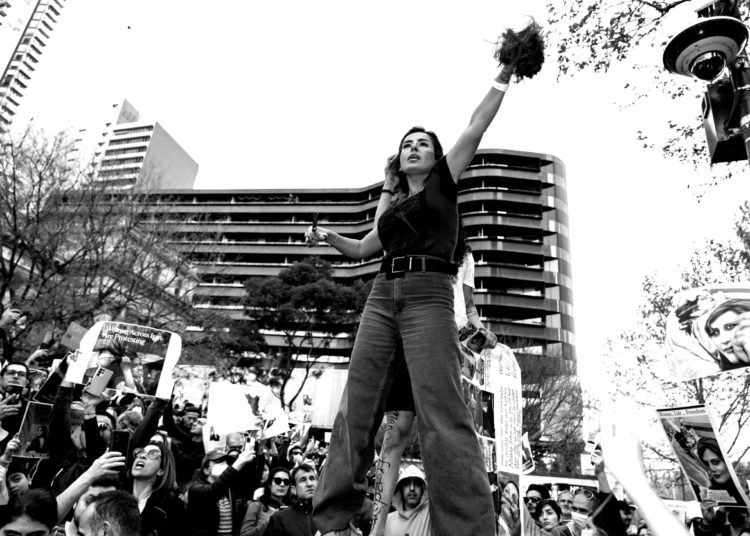This post is also available in: Français (French) العربية (Arabic)
Find all of Rola’s stories here.
The Grand Mufti of Jerusalem and the Palestinian territories confirmed the sighting of the crescent moon on March 31st, marking the beginning of Eid in Palestine. But in Gaza, we have yet to catch sight of a crescent ceasefire moon.
This year, residents of Gaza have been more anxious for news of a ceasefire and the return of calm than for the sighting of the crescent moon. “How can we celebrate the arrival of Eid,” they say, “when we have no safety from the occupation’s deceit and treachery?” Israel does not hesitate to strike civilians in Gaza, even during their sacred celebrations.
A third Eid under genocide
This marks the third Eid in Gaza under the ongoing genocidal war.
The previous two were drenched in blood and loss.
The final day of Ramadan—which this year coincided with the last day of March—had barely ended when the Ministry of Health announced that dozens of victims had been sent to hospitals as a result of Israeli airstrikes across different areas of the Strip.
The Rimal neighborhood, in the heart of Gaza City, was teeming with people who had gone out that afternoon, trying to find a semblance of festivity among the wreckage of shops and crumbling roads. But they were surprised instead by Israeli warplanes bombing an agricultural zone near the Ministry of Detainees, which is not far from the crowded area. The blast sent a wave of terror through the street.
Minutes later, another airstrike hit a nearby tent sheltering displaced families, inside the Social Insurance and Pensions Authority headquarters, west of Gaza City. Three women were killed.
This Eid, I decided to bring my children some happiness, despite the genocide that has picked up in full swing all around us, despite a year and a half of not observing any holiday rituals or celebrations.
A mother’s eye for detail, despite the war
Before October 7, I firmly believed that happiness was a choice. It was with this mindset that I approached family occasions and social situations. In keeping with this principle, I decided this Eid to bring my children some happiness, despite the genocide that has picked up in full swing all around us, despite a year and a half of not observing any holiday rituals or celebrations.
I went out several times to buy them new clothes from the few shops that are still standing in Gaza City. I wanted to get them ready for Eid with the same attention to detail they’d known before the start of the war.
Those who know me know that as a mother, I am very particular about the details of my children’s appearance and clothing, especially during holidays and important occasions. I did everything I could this year, but then the occupation suddenly resumed its aggression against us.
My preparations ground to a halt. I confined myself to our “displacement shelter” (1), fearing the indiscriminate shelling targeting civilian gatherings, cars, homes, tents, and shelters.
There were no sweets in town anyway. The border crossings into Gaza had been closed for a month, blocking the entry of humanitarian aid.
I remained in this state until the last day of Ramadan. Then as talk of a possible ceasefire for Eid began, I went back out to buy everything else I wanted for my children. But when Eid came without the awaited calm, fear took over once again. I decided we would celebrate alone, at home, and would not visit our families in the south like we usually do.
On the morning of Eid, my children put on their new clothes. I made them a breakfast I hoped would feel special and gave them some sweets and small gifts.
But they weren’t happy. It was evident in the question they relentlessly asked me—“Mama, when are we going out to celebrate Eid?”
I realized then that we no longer have the power to choose happiness for ourselves, that Eid is not something we celebrate alone. It’s a joy shared with others. I understood that the joy of Eid began every year with a visit from my father and brothers, who were unable to visit us in Gaza this year due to the bombing and difficulty in getting around.
A celebration that ends in death
All day long, my children kept asking to go out in the street to “see the celebrations.” I tried to distract them, made excuses. But eventually, I gave in. To their delight, I reluctantly and anxiously agreed to take them out.
We walked through a city in mourning, searching for any trace of Eid. I was shocked by the exorbitant prices—though prices have soared since the first day the crossings were closed a month ago, and knowing that they increased further with the new wave of attacks, the advent of Eid caused a new, incomprehensible surge.
I knew then that there was no longer any point in trying to create happiness in our city. Death is always one step behind. It is stronger than our attempts to survive.
Still, I tried to buy my children whatever I could afford to make them happy. As the sun started to set, we decided to return home. Night in Gaza brings more fear and danger, more intense airstrikes.
And then, the very thing I had feared happened. The exact reason I hadn’t wanted to go out. We escaped death by barely a minute, a few meters. An Israeli drone struck a civilian vehicle at one of the main intersections in Gaza City, just a few steps away from where we were walking.
People around us started to scream. Bodies started to fall. Moments before, they'd been walking beside us in the street. Now they fell to the ground, injured.
Whatever joy my children had felt turned to fear. Their laughs turned to tears. All my efforts to bring a smile to their faces had been in vain.
I knew then that there was no longer any point in trying to create happiness in our city. Death is always one step behind. It is stronger than our attempts to survive.
A bloody Eid
The first day of Eid ended with the arrival of more than 70 victims and dozens of injured to Gaza’s hospitals, most of them women and children in their blood-stained holiday clothes.
All signs of celebration disappeared from the tents of the displaced, and with them the scent of kaak and maamoul. They were replaced by the stench of gunpowder.
It should have been the Eid takbirs that echoed all around us, but instead all we could hear was the drone of the occupation’s warplanes getting louder and louder. They stole the lives of children and women, turning the takbirs into wailing cries of funeral prayers.
The United Nations Office for the Coordination of Humanitarian Affairs (OCHA) has confirmed that everything in Gaza is running out: supplies, time, and life. The humanitarian situation continues to unravel.
All governmental and humanitarian agencies confirm the catastrophic humanitarian conditions in Gaza, but on the ground, the only thing that continues uninterrupted is the siege and destruction.
And yet—I am still a mother. A mother still searching, against all odds, for some happiness for my children in this genocide.































